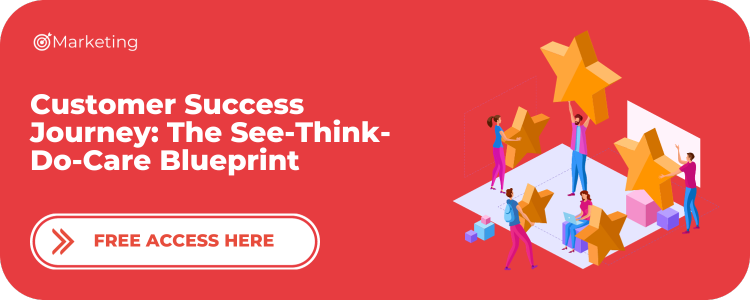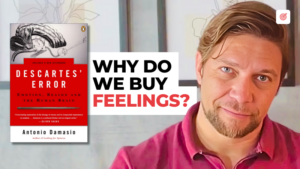
.
✅ FREE ACCESS: Customer Success Journey: The See-Think-Do-Care Sales Blueprint
What an ancient Sumerian marketplace can teach to a modern personal brand?The answer lies in the very first sale ever recorded in history.
That sale produced three powerful principles that gave merchants who applied them a competitive edge never seen before.
Principles that have outlined the foundation of Capitalism, have been the secret formula for thriving brands throughout history, and are more essential than ever in a fast-paced digital world.
Today, you will uncover how these unspoken principles can help you build a sustainable personal brand that stands the test of time.
The Ancient Sumerian Marketplace
Imagine stepping into a Sumerian marketplace around 3000 BC.
The first thing that hits you is the noise—voices from merchants haggling, buyers arguing over prices, and animals bleating and braying.
This is not an organized market with neat rows and regulated stalls. Instead, it’s a chaotic sprawl where commerce is as wild and untamed as the land itself.
Without any organized trade systems, running a business is a challenge. There’s no set pricing, no standardized measurements, and definitely no consumer protection laws.
Every transaction is a gamble, a battle of wits. Trust is a rare commodity here; you have to be sharp and constantly on guard.
And without a uniform system for weights, measures, or quality standards, traders couldn’t be certain of the value of their goods or predict market prices with any reliability.
Planning for the future was nearly impossible.
The First Recorded Sale In History
One of the most groundbreaking moments in the history of trade was the first recorded sale on a Sumerian clay tablet.
Instead of relying on verbal agreements and personal trust, you now had a tangible document that outlined the terms of transactions.
This was revolutionary.
For the first time, there was a way to create a consistent and unchangeable record that both parties could reference, creating the basis for our current economic system.
The question is:
What competitive advantages can we learn from the first sale ever recorded in History to build a modern and sustainable business today?
The Timeless Challenges Every Solopreneur Must Face
Despite of being thousands of years apart and relying on a different marketplace schema, ancient Sumerians and modern solopreneurs have a lot in common.
The power imbalances, market uncertainty, lack of trust and integrity are inherently part of the human experience and can travel through the vast expanses of time.
Power Imbalances and Trust
In the modern digital business landscape, start-ups and small businesses face unique challenges in building trust.
Lack of visible credentials or insufficient online presence can make it difficult to convince customers of their reliability and quality.
Unlike larger businesses that have dedicated customer service teams, a solopreneur, someone that founded a one-person business, must manage all aspects of their operations.
In that scenario, delayed responses or inconsistent product quality can quickly lead to dissatisfaction and a loss of trust.
Market Uncertainty
Compounding with this issue is the fierce competition for attention.
Standing out in today’s crowded and saturated digital landscape is a monumental task.
The constant pressure to adapt and compete can lead to burnout, reduced creativity, and decision fatigue.
When you feel overwhelmed, your ability to make clear, strategic decisions is compromised, leading you to adopt short-term thinking and reactive strategies.
This can result in missed opportunities, misallocation of resources, and ultimately, business failure.
3 Must-Know Lessons for Modern Solopreneurs
Establishing Integrity as a Brand
Imagine a place where everything you are told would happen, actually does.
When a promise is made, everyone involved makes sure it happens. If a project runs late, they don’t hide or make excuses. They reach out, explain what’s going on, and offer a solution.
This place is called “Integrity”.
Here, customers have low level of objections, high return rate, and become brand advocates.
Why?
Because integrity is the basis of trust and there’s no purchase without trust.
But integrity is also a hard game. It demands sacrifice, innovation, and service.
That matters because branding is not what you do with your business, it’s what your customers do with it.
You don’t build a brand, you build a business and your customers create an infinite number of brands from their interactions with your business.
If integrity was a color, your customers would paint your business with it, and it would be easy to spot your brand in a crowded marketplace.
Balancing Power Dynamics
That’s why every solopreneur journey must begin with embracing your authentic self. Where every action and every word reflects who you are.
Why is authenticity so powerful? Because it’s refreshing, relatable, and attractive.
If you love what you do, it shows. Passion is contagious; it inspires and motivates others.
There’s no such thing as a saturated or crowded marketplace when you build the business of you.
The world doesn’t need another product. The world needs passion, commitment, and loyalty.
Authenticity is your unique selling proposition. There’s no one else exactly like you, with your combination of skills, experiences, and passions.
You are the only unique thing your competitors won’t ever have.
Navigating Market Uncertainty
So, approach every interaction with the intent to provide an authentic voice of service and let sales become the natural consequence of the reciprocity built from those interactions.
When your customers trusts you, they are more likely to stay loyal, even when competitors come knocking at their doors.
This will end the exhausting battle of discounts and promotions for first-time buyers, translating your business efforts into stable revenue and reducing your market vulnerability.
When you sell to people who value what you stand for, purchasing is not longer a cost to them. It becomes an investment in a cause their share with you.




